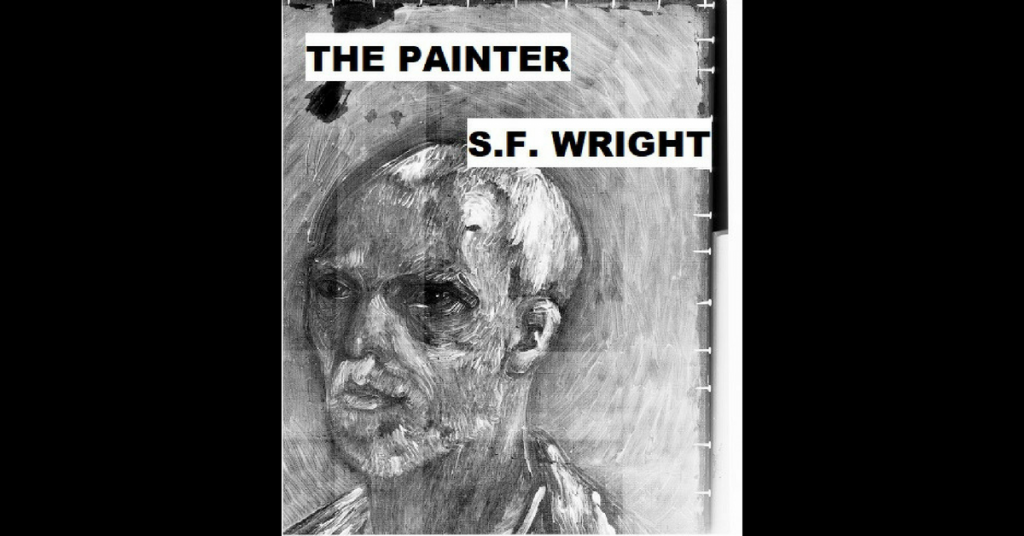Lands wanted to be the next Jackson Pollack; his parents and siblings told him he should pursue a field in which he could get a real job. But Lands couldn’t see himself as a professional, and he figured, while he had the chance (his parents would pay for college, even if it was art school), he might as well study what he wanted.
Art school was, at times, memorable. Lands didn’t live the promiscuous, bohemian lifestyle he imagined an artist-in-training would, but he did get laid once (a fellow student who later left school to join a religious convent after a bad acid trip); he also developed a taste for booze: scotch, whiskey, gin—he loved it all. Alcohol made Lands’ life seem better than it was, and if he was too depressed for liquor to help him achieve even that, booze would still make Lands forget: that he had no future, that only with incredible luck would he ever make it with his art, that he’d probably spend his life working undesirable jobs and painting in obscurity.
After graduating, Lands lived in an apartment with two friends from school. But soon, even with two roommates and Lands’ working as a waiter and record store clerk, the city got too expensive. Lands had to move out; with nowhere else to go, he moved back with his mother. (Lands’ father had died of a heart attack when Lands was in art school.)
He got a job at a Pearl Art and Craft Supply. He still went to the city, but more and more frequently he visited alone, his friendships from art school dwindling. Usually Lands stayed home; shut himself in his room with a bottle of gin, vodka, or bourbon; and drank: not only to forget the day at Pearl Arts and Craft Supply, but also to numb himself to the fact that his was a squandered, sad, and hopeless existence. Lands’ mother disapproved of her son’s drinking; she’d yell at Lands when he passed out on the floor. But there wasn’t much she could do except kick Lands out, which she wouldn’t do.
When Lands was thirty-four, his mother sold the house and bought a condo. Also, Pearl Art and Craft Supply closed, leaving Lands unemployed.
He moved with his mother, having nowhere else to go, and for a while Lands remained unemployed. But he liked getting up when he wanted, drinking whenever he felt like it, and having no responsibilities. Lands even started to paint again (the condo’s extra bedroom had decent light for it), but his mother soon grew tired of her son’s not working. And what little savings Lands had was quickly going toward booze. So at thirty-five, he had to look for a job, and he applied to the Barnes and Noble which was situated across the street from the former Pearl Art and Craft Supply (now a Modell’s Sporting Goods).
Lands got hired. His mother was happy. Lands was depressed. He was able to get a daily seven-to-three shift, which meant he could drink if he had work the next day, as long as he started when he got home and cut himself off before it got too late. But Lands disliked the work, and he hated the customers and crowds. Only the first two hours he didn’t mind, when the store was empty except for other employees, and he shelved books.
For years Lands did this: working seven to three, five days a week; drinking when he got home; cutting himself off when he had to work the next morning; getting obliviously drunk when he had the following day off. His mother simply lived with his drunkenness, and as long as Lands kept it behind his bedroom door, mostly didn’t say anything.
Holidays were awkward. Lands would go to one of his siblings’ houses, or they’d come to the condo; and the elephant in the room was always what a failure Lands was: still living at home, no one in his life except for his mother. Or at least it felt like the elephant in the room to Lands. He saw himself as a failure, and couldn’t imagine how anyone else, especially his siblings, wouldn’t either.
Lands’ taste for and love of alcohol refined and honed itself into a discerning palate and passion for bourbon: Old Gran-Dad, Maker’s Mark, Jack Daniel’s. Good bourbon was expensive, though, and consequentially, Lands didn’t save much money. But he figured, What would I be saving it for anyway?
Lands still went to a museum every couple of months: the MOMA, the Met, the Guggenheim. Sometimes he thought he might see someone from art school. He never did.
And every few months or so, Lands would take a fresh canvas and put it on his easel. He’d stare at the canvas at first, but after a few sips of bourbon Lands would get inspired; he’d paint religiously for ten, fifteen minutes, thinking he was creating something of genius. But then Lands would get tired and feel more like drinking than creating, and he’d tell himself that he’d resume working on the painting the next day. He’d wake up the next morning, hungover, though, and look at these streaks of paint as nothing but a futile, aborted attempt at art. Lands would consider the painting with shame, and then throw the canvas out; he’d then try to forget what he thought was a terrible effort, even though he really didn’t know any more if it was or wasn’t, and then he’d get ready for work.

